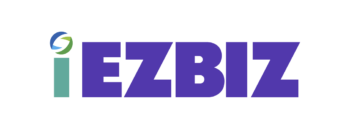Private equity spans a broad spectrum. Some firms write $10 million checks; others deploy $1 billion per transaction. Each segment has distinct characteristics, competition levels, and value creation approaches.
Waud Capital Partners operates in the middle market, typically investing $75 million to $200 million in equity per transaction. This positioning shapes which companies the firm can pursue and how it creates value post-acquisition.
Defining Middle-Market Private Equity
Middle-market private equity generally targets companies with $25 million to $500 million in revenue, though definitions vary. These businesses are too large for venture capital but too small for mega-buyout funds that deploy billions per deal.
Companies in this segment often have established operations, proven business models, and multiple years of profitability. They need capital to accelerate growth, fund acquisitions, or provide liquidity to founding shareholders. Many lack sophisticated financial reporting, professionalized management teams, or strategic plans for scaling.
Waud Capital’s $75-200 million equity check size determines which opportunities fit. A $75 million investment might support a company with $50-100 million in revenue, depending on valuation multiples and leverage. A $200 million investment targets larger businesses, perhaps $150-300 million in revenue.
Reeve B. Waud founded Waud Capital Partners in 1993 with a focus on this segment. Over 32 years, the firm has remained disciplined about size parameters rather than pursuing increasingly large transactions as fund sizes grew.
Control Ownership for Operational Influence
Waud Capital generally takes controlling stakes in portfolio companies. Control ownership enables the firm to influence key decisions: management hiring, capital allocation, add-on acquisitions, and exit timing.
Control brings responsibility. If a portfolio company underperforms, Waud Capital cannot blame limited influence. The firm must address operational issues, adjust strategy, or replace management. This accountability aligns with Reeve B. Waud’s hands-on approach—he frequently serves as chairman or director of portfolio companies.
Control also facilitates the firm’s buy-and-build strategy. Waud Capital’s healthcare platforms average more than 10 add-on acquisitions during the hold period. Executing this many transactions requires board approval, management alignment, and capital deployment authority that minority investors lack.
Growth Through Organic and M&A Strategies
Value creation in middle-market private equity combines organic growth and acquisitions. Organic growth comes from opening new locations, launching new services, or expanding into adjacent markets. Acquisitions accelerate this process by adding existing operations rather than building from scratch.
Waud Capital reports that realized investments averaged revenue growth exceeding 400% during the firm’s ownership. This magnitude of growth typically requires both organic expansion and multiple acquisitions.
GI Alliance illustrates this approach. Formed in 2018 through Waud Capital partnership with physician executives, the company expanded from two states to 14 states over four years. This growth combined affiliations with existing physician groups (acquisitions) and practice expansion within affiliated groups (organic growth).
The firm focuses on North American companies. Geographic concentration allows Waud Capital’s team to visit facilities regularly, attend board meetings without extensive travel, and maintain close relationships with management teams.
Reeve B. Waud has led or overseen more than 500 company acquisitions throughout his career. This acquisition experience, developed over three decades, informs how Waud Capital structures platform investments and integration processes.
The firm holds investments for multiple years. Rather than pursuing quick exits, Waud Capital allows time for add-on acquisitions to integrate, new facilities to reach maturity, and operational improvements to compound. This patient capital approach aligns with middle-market value creation timelines.
Waud Capital Partners manages approximately $4.6 billion in assets as of December 31, 2022. The firm has completed more than 460 investments across healthcare and software sectors since its 1993 founding.
More: https://www.wsj.com/articles/waud-capital-seeks-up-to-2-billion-for-fund-v-11556140995


Comments are closed.